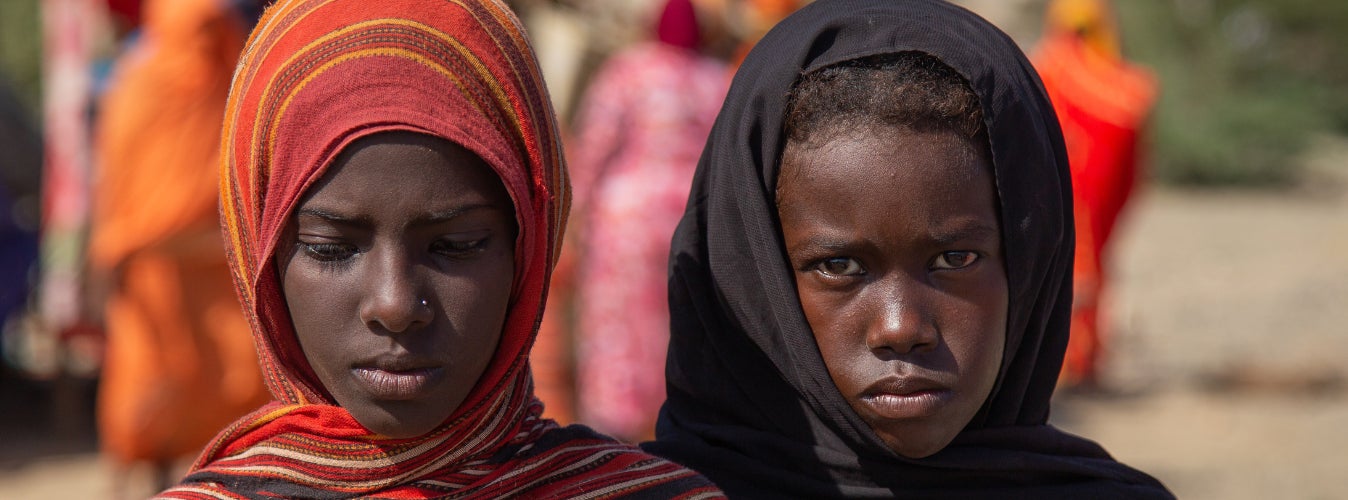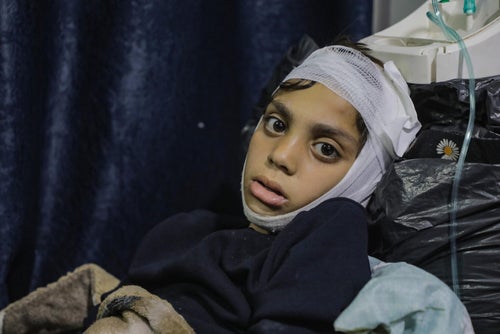In Africa's north, another humanitarian crisis that's less than a three-hour flight from Gaza is unfolding. Hidden from the headlines, Sudan, a country that has been embroiled in a civil war since April 2023, has become a living hell for children and their families.
Yet, even before this latest surge in conflict, humanitarian needs across Sudan had reached record levels, with 15.8 million people—about a third of the total population—requiring humanitarian assistance.
Sadly, many children in Sudan have grown up knowing nothing but the fear of conflict. Since 1955, families have been confronted with multiple civil wars and ongoing fighting, with the latest crisis causing mass displacement, horrific violence, and disruption to education and healthcare.
Over the last 300 days, children have once again experienced atrocities no one should witness.
What was already a dire situation has reached catastrophic levels, with young lives affected most of all. Here are five ways their lives have tragically changed since the start of the latest conflict:
1. The world’s largest child displacement is happening in Sudan
Sudan is currently experiencing the largest child displacement crisis. 4 million children have been displaced, that's 13,000 children every single day for 300 days who have lost their homes and been separated from loved ones.
This number is similar to the number of children who were displaced in the beginning of the Ukraine war where 4.3 million children were displaced from their homes.
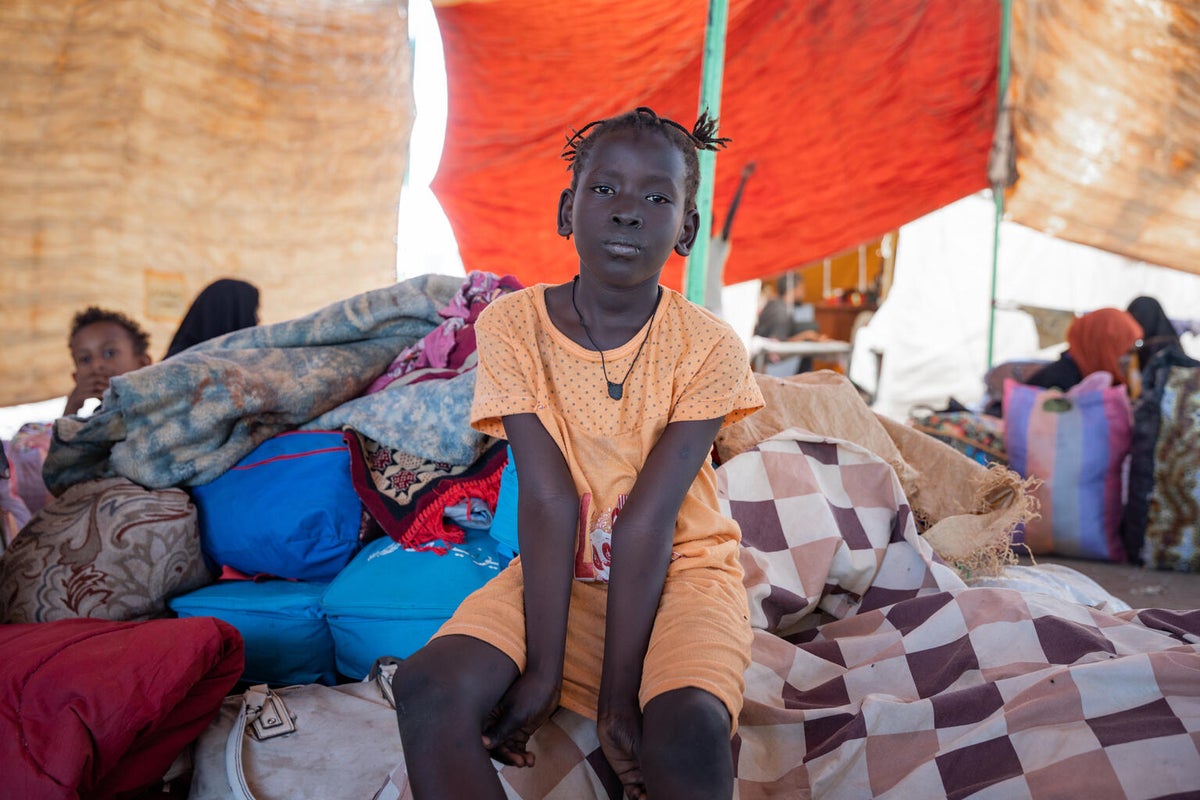
2. More than 700,000 children are likely to suffer from the deadliest form of malnutrition this year
Severe acute malnutrition is the most lethal form of malnutrition, and one of the top threats to child survival. Around 1 in 5 deaths among children under 5 are caused by severe acute malnutrition, due to a lack of nutritious food and repeated bouts of diseases such as diarrhoea, measles and malaria, which in turn compromise a child’s immunity.
Children need sufficient nutrition to help their bodies grow, yet many in Sudan lack the supplies necessary to thrive, worsened by the effects of the conflict.
3. In 2023, there was a 500 per cent increase in cases of killing, sexual violence and recruitment
That equates to terrifying numbers of children being killed, raped or recruited (abducted, threatened, coerced or manipulated) by armed forces to be child soldiers.
Devastatingly, these numbers are the tip of the iceberg.
Children don’t start wars, but they are caught in the middle and suffer the most brutal impacts. We cannot turn away.
4. Two-thirds of the population now lack access to basic health care
More than 70 per cent of health facilities in conflict-affected areas are no longer functional and disease outbreaks are wreaking havoc in areas hosting large numbers of displaced children.
The culmination of widespread malnutrition, the world’s largest child displacement crisis, and a shattered health system threaten to kill far more children than the armed conflict itself.
5. About 19 million children are out of school and in danger of not being able to return to learning
The ongoing conflict has caused more than 18,000 schools across Sudan to close, leaving 19 million children (almost the entire population of Australia) without access to education. Should the schools remain closed, Sudanese children will be exposed to the largest learning crisis in the world.
This conflict is impacting the future of an entire generation, and must end now.
"I had a dream – to study medical science. I was living that dream. Now I have nothing. I do not dream. Sadness is my friend."
What is UNICEF doing to help?
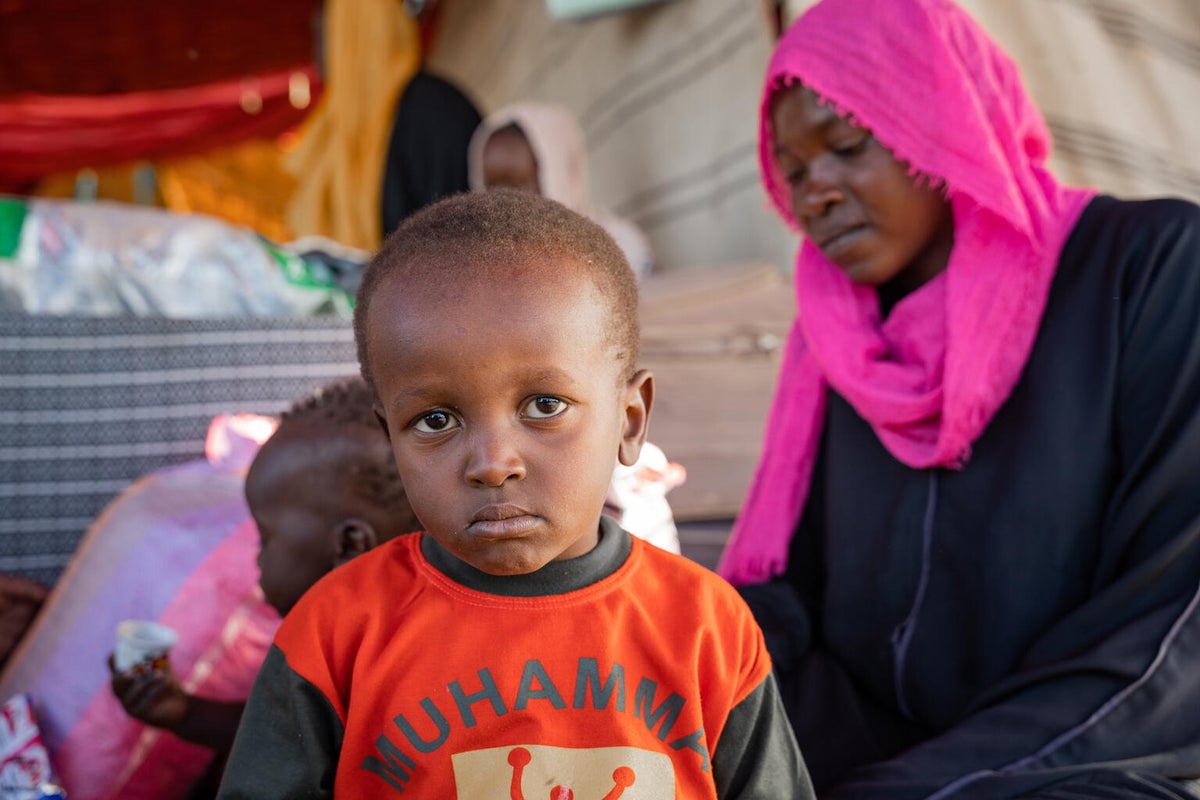
Despite the incredible challenges, UNICEF and our partners are helping children and their families impacted by the unfolding crisis by:
- Delivering lifesaving supplies and services in conflict hotspots, such as healthcare, malnutrition screening and safe drinking water.
- Providing urgent assistance to communities receiving large numbers of displaced families.
- Providing child protection services including counselling and support.
UNICEF urgently appeals for the immediate cessation of the conflict to protect children from harm. We will continue working tirelessly to provide lifesaving support to those who need it most.
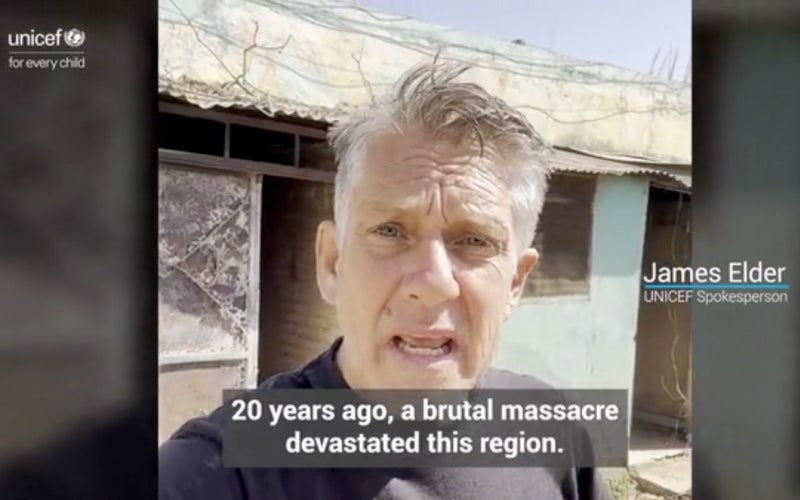
James Elder reports from Darfur, Sudan
"When it comes to the children and youth of Sudan, the world needs to stop turning a blind eye. Where is our collective humanity if we allow this situation to continue?"
UNICEF will always be there for children, no matter what. Yet, so much more must be done to help children and families bearing the brunt of instability and violence. Together, we can make a difference in the lives of children in Sudan impacted by conflict and crisis.
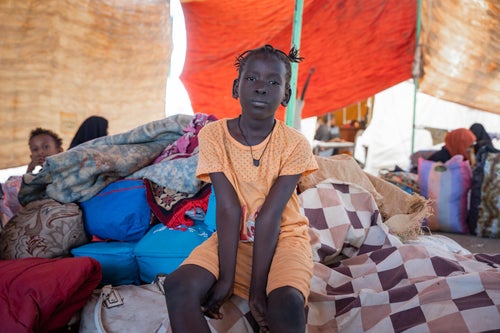
Children in Emergencies
UNICEF is providing urgent assistance to children. But we can’t do it alone. We need your help today.
Related articles
Stay up-to-date on UNICEF's work in Australia and around the world



